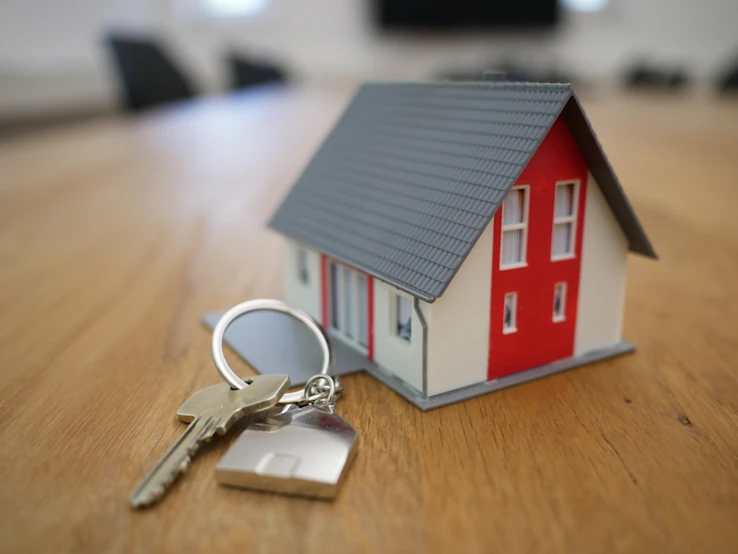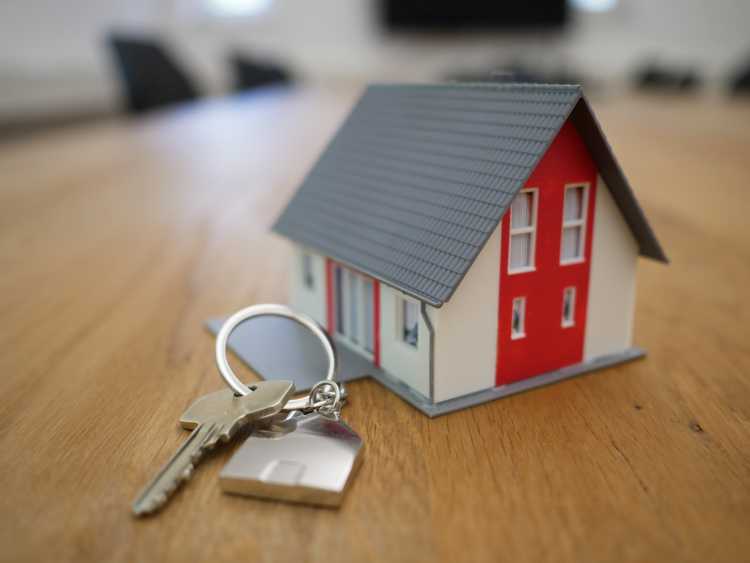20 important questions to ask when buying a home
Posted June 16th, 2023 by SimpliSafe


Househunting can be a long and tiresome process, so when you find the perfect home it can be easy to jump straight in without thinking things through. However, it is essential to prepare yourself with a checklist for buying a new home as well as the right questions to ask about the property. It helps buyers to have a list of questions to ask when buying a new home to ensure they know exactly what they’re getting themselves into. Not sure where to start? Take a look at these 20 important questions to ask when buying a home.
20 important questions to ask when buying a home
1. How did you decide on the recommended asking price?
It can be hard to gauge property values, especially if there seem to be fluctuations in the local area. To gain a greater understanding of exactly what your money is going towards, you could ask this question to the seller or estate agent. Plus, if the asking price is lower than you expected, then this is a good way to determine why. Sometimes it could just be that the owner wants to sell up quickly, but other times this could be an indication of potential issues.
2. How long has the property been on the market?
If a property has been on the market for a long time, there could be a reason why. Plus, properties that have been on the market for a long time could go for a lower price. So, it’s worth asking this question before submitting your offer.
3. What is the neighbourhood like?
You aren’t just buying a property, you are also joining a community of other residents. That’s why it is important to ask about the neighbourhood. If most of the surrounding houses are rented out as holiday homes, you may not have the opportunity to bond with a community. Are dogs welcome, meaning your home guard dog can make new furry friends? Be sure to suss out your new neighbourhood before you decide to join it.
4. How are the neighbours?
Neighbours can play a huge role in how happy you are in your new home, especially if you live in a terraced, detached or semi-detached house. Nightmare neighbours can cause a multitude of problems such as noise or trespassing pets. Ask the previous owner or even surrounding neighbours about your next-door neighbours to get a good idea of who may be sharing your backyard.
5. What is crime like in the area?
Even homes in the safest areas shouldn’t just leave their doors unlocked whenever they like. But in some areas, you may need to take more precautions than others. Be sure to ask about crime in the area so that you can take the correct precautions for securing your new home, whether that’s installing a Home Security System or keeping your shed secure.
You can also conduct your own research about crime in your area; take a look at our guide to crime in the UK and find out how safe your new neighbourhood is.
6. Has the property ever been broken into?
If the property has been broken into before, there may be some weak spots or specific targets that appeal to thieves. If it has, this doesn’t mean you should not buy the property, but you may need to be more careful with your home security. Installing outdoor cameras and video doorbells are good burglar deterrents to help ward off trespassers.
Our guide, “How good is your home’s security?”, can help you evaluate the security of your new home, as well as expert tips on how to improve it.
7. Has there been any work done on the property?
If the previous owner has done any work on the property, whether it’s an extension or just a fresh lick of paint, you need to know. If, for example, the owner has built an extension or shed without the correct planning permission, you may have to tear this down yourself. Even just fresh paint could indicate problems such as mould or damp that the owner has attempted to hide.
8. What is included in the sale?
Some houses may come with furniture and appliances included, whereas others may be completely stripped bare. Make sure you know exactly what will be included in the sale so you don’t end up spending more money after the sale is completed. It is also worth asking what security measures may be left behind, such as a mounted bell box or other alarm systems.
9. What are the local schools like?
If you are moving with children, or plan to raise a family in your new home, you’ll need to consider the local schools. Make sure to do your research and make sure your new home is in the correct catchment area for your desired schools.
If you have children, you’ll also know the importance of teaching them life skills outside of school. Being able to teach your children about home safety in order to keep your whole family safe in your home. Make sure they know the basics, such as not talking to strangers, and try to familiarise them with your home security system in case of an emergency.
10. Is the property a listed building?
If a property is listed, there will be restrictions on what you’re able to do with your new home. This is especially important if you plan to renovate or expand your home after the sale.
11. Is this property on a floodplain?
Flooding is inconvenient, costly and sometimes even dangerous. Before purchasing a home, make sure to evaluate the risks of flooding so that you can adequately prepare and invest in water sensors where needed. If the home is on a floodplain, there will be a high likelihood of flooding and you will need to read up on how to prevent your home from flooding.
12. Why is the owner selling?
Homeowners can sell for many reasons, most of which won’t affect you. However, if someone is moving due to feeling unsafe in the area or pending construction work nearby, you will need to know this information before it has a negative impact on your new life.
13. Has the property’s value changed recently?
Property values usually change over time, especially if new owners carry out renovations or other works that may add value to a home. You can see previous property values on the Land Registry Open Data website. This can also help you to see the prices of other homes in the area, giving you a better idea of how your property is priced.
14. Have the sellers found a new home?
Whether or not the sellers have found a new home will greatly impact how quickly you can buy and move into your new home. If they have already found a new home, they may be eager to sell the property as soon as possible and may be more open to offers. However, if the sellers do not have somewhere else to live, this could leave you stuck in a housing chain.
15. Are there any local plans that could affect the property?
Does your property have stunning views or a gorgeous park just down the road? The last thing you want is to lose those beautiful features just a few months after purchasing your home, so find out as soon as possible if there are any plans that could change the property. This could also be the reason why the current owners are selling, so be sure to do your research!
16. How much are council tax and other bills?
Buying a home is a huge financial investment, so budgeting is really important. Even if a house is within your budget, you may find that the energy bills or council tax are too expensive for you to upkeep. Plus, knowing this information sooner rather than later will help you to plan your finances for the future.
17. How is the broadband and signal within the house?
Some properties in rural areas may have very slow broadband speeds and poor phone line connection. While this may not bother some people, if you work remotely or can’t live without your favourite streaming services, this could be a big problem.
18. How old are the drains and guttering?
Although not the most exciting part of buying a new home, you should be aware of the practical maintenance of the property. If the drains and gutters are very old, you may need to repair or replace them soon after moving in.
19. Will you be my point of contact throughout the process?
When speaking with estate agents, make sure you know who your main point of contact will be. An estate agent may be going on holiday or passing you over to another colleague, which can be inconvenient and confusing. Define who you will be in touch with from the start to make the buying process much easier.
20. Is there anything else I should know about the property right now?
This is a pretty vague question, but it gives the seller or estate agent the opportunity to let you know anything you may have missed or forgotten to ask about. If any problems arise later on, you may be able to question why you were not made aware of this during the buying process.
The SimpliSafe home security blog has all the information you need to protect yourself and your new home. With advice from hiding valuables to preventing pet theft, SimpliSafe’s expert knowledge and home security products can help to keep you and your loved ones safe.